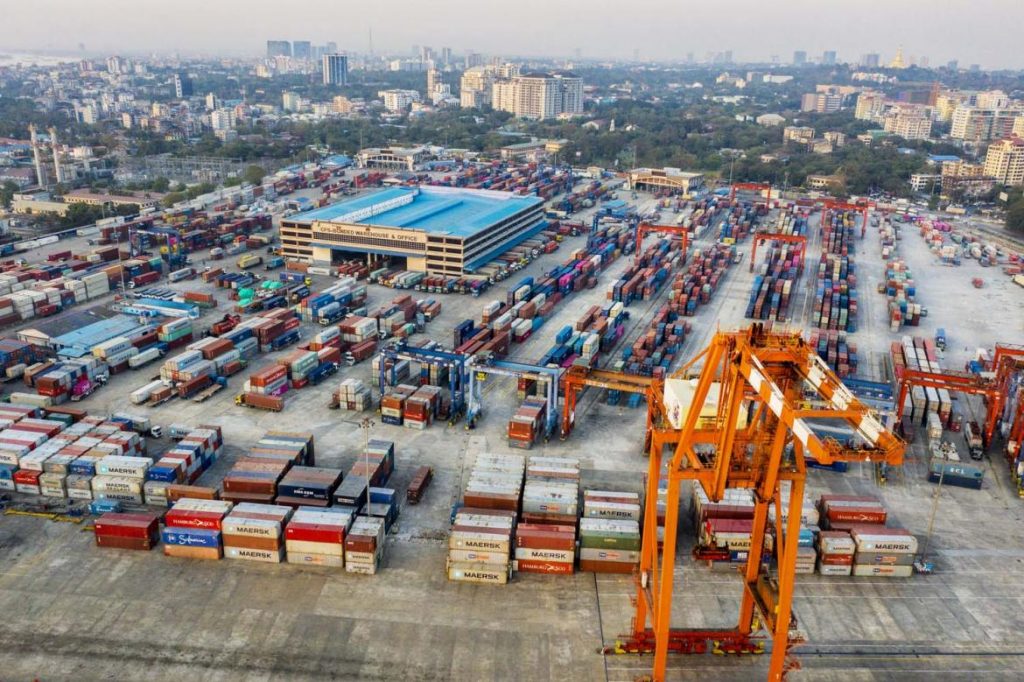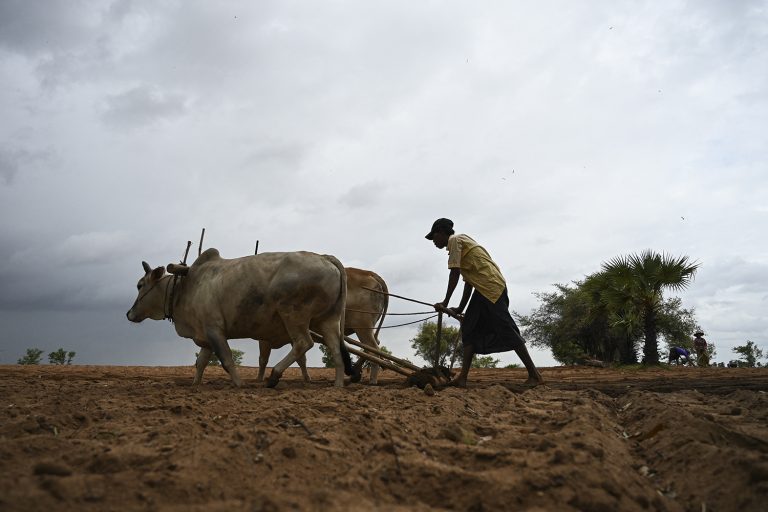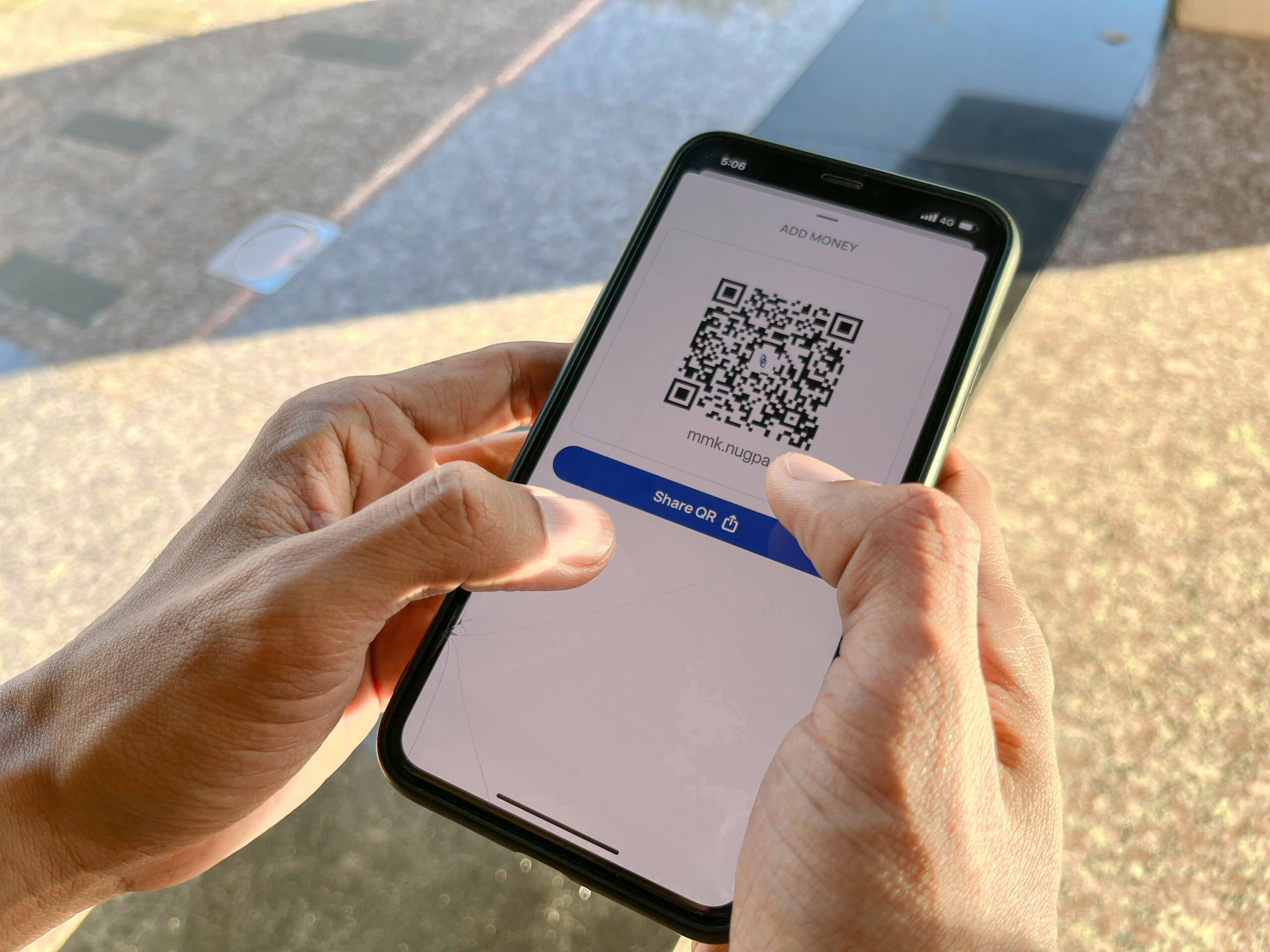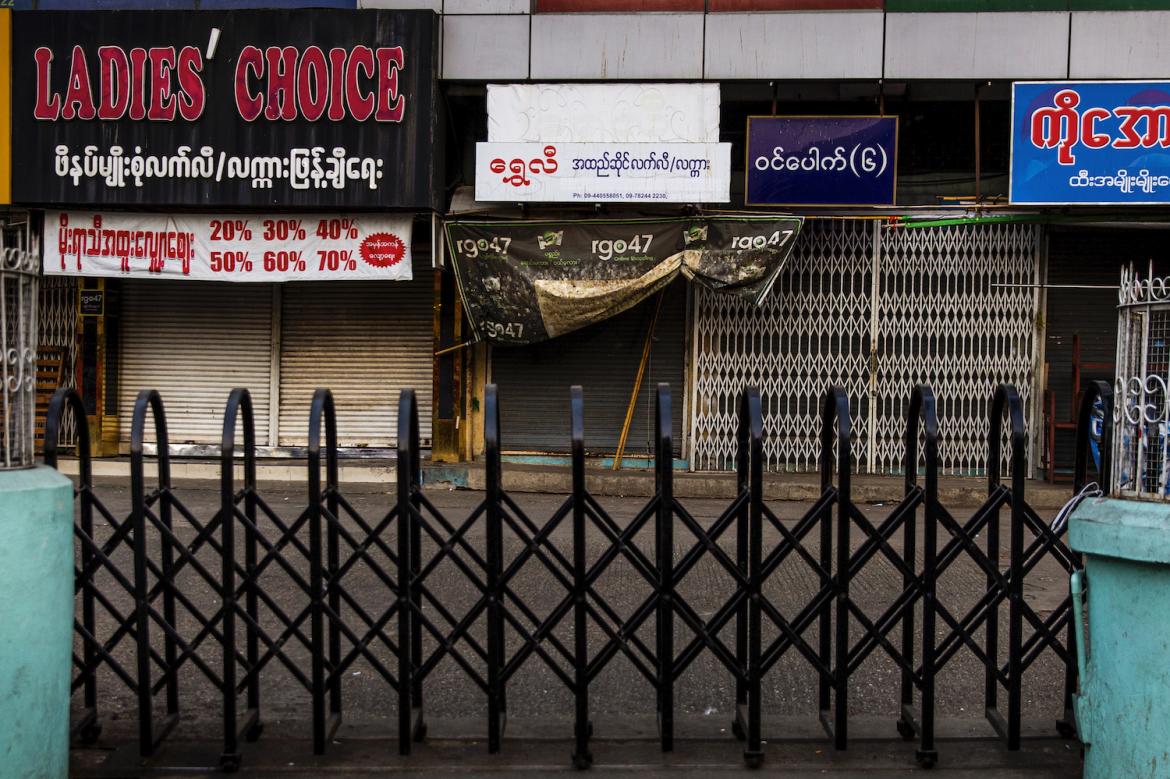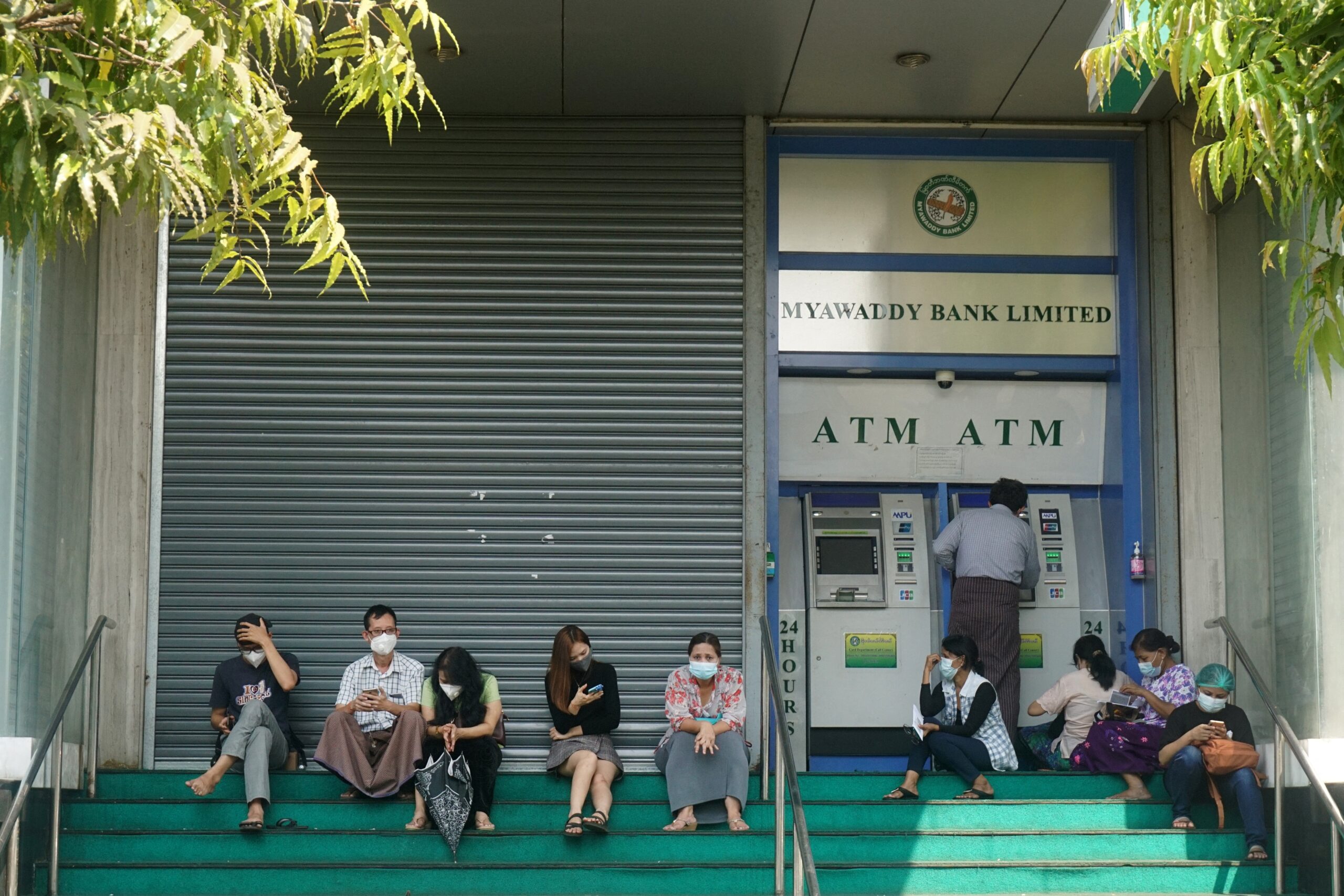KBZ Bank is suing the owner of Myanmar Industrial Port over alleged unpaid debts of more than US$200 million, in a case that is symptomatic of the problems facing the country’s leading banks as they seek to resolve legacy non-performing loans.
By THOMAS KEAN and KYAW LIN HTOON | FRONTIER
The country’s largest private bank, KBZ, is taking a leading businessperson and his company to court, alleging unpaid debts in excess of US$200 million in what is believed to be Myanmar’s largest ever loan default.
KBZ has filed suits against businessman U Ko Ko Htoo and Myanmar Annawa Swan A Shin Company Limited at the Yangon Region High Court, alleging he and the company had failed to repay loans and had accumulated a total debt including interest of around K326 billion (US$221.4 million at current exchange rates).
Ko Ko Htoo is the managing director of MAS and his family holds 100 percent of the company, according to the Directorate of Investment and Company Administration. MAS owns and operates one of the country’s busiest ports, Myanmar Industrial Port in Yangon’s Ahlone Township.
In 2016, the International Finance Corporation provided a $40 million convertible loan to MAS to expand the port but the relationship later soured over corporate governance issues, according to two sources with knowledge of the deal.
Support more independent journalism like this. Sign up to be a Frontier member.
The loan was envisaged as the first phase of a $200 million financing package that would also have included $160 million in long-term senior loans from the IFC and other foreign lenders, but the second phase never materialised. IFC confirmed to Frontier that it exited the project in December 2018 after MAS repaid the $40 million loan.
KBZ commenced litigation against Ko Ko Htoo and MAS in December 2019 and this month the bank began presenting evidence to support its claim. Frontier understands it is the largest such claim to be heard in a Myanmar court, and that, taken together, Ko Ko Htoo and MAS are possibly the largest private sector debtor in the Myanmar banking system.
At a January 13 hearing attended by Frontier, lawyers for KBZ alleged that Ko Ko Htoo owed the bank more than K63 billion in principal and interest as of October 30, 2019. In a separate hearing the following day they alleged that MAS had accrued debt of K262.8 billion to November 6, 2018.
At the hearings, lawyers for KBZ said the bank initiated the legal action because failure to repay the loans could lead to losses for the bank as well as the public, whose money – in the form of deposits – was lent to MAS and Ko Ko Htoo.
The lawyers detailed how Ko Ko Htoo and MAS had in 2010 taken out overdrafts of K7.2 billion and K140 billion, respectively, at an interest rate of 17pc. The interest was reduced to 13pc in 2017, the bank’s lawyers told the court.
By the time KBZ called in the debt in December 2017, Ko Ko Htoo had increased the overdraft on more than 20 occasions, and MAS had raised its overdraft at least five times, the bank’s lawyers told the court this month. They did not specify whether Ko Ko Htoo or MAS had made any payments to reduce the overdrafts since the loans were issued, or what the increases for the overdraft were used for.
After Ko Ko Htoo and MAS failed to repay the debts, KBZ initiated proceedings in June 2018 but withdrew the suit when he promised to repay the loans by July 5, 2018. After Ko Ko Htoo and MAS failed to stick to the deal, the bank issued a notice to him again in December 2018. Although Ko Ko Htoo and other directors again came to KBZ and promised to repay the debt, the bank’s lawyers said he failed to do so. They closed the accounts on January 30, 2019, and started fresh legal action.
During 2018 MAS came close to selling Myanmar Industrial Port to Indian firm Adani, but the deal collapsed at the last minute, three sources involved in the negotiations told Frontier.
Instead, Adani received Myanmar Investment Commission approval in April 2019 to develop a new $290 million port in downtown Yangon on land leased from military firm Myanmar Economic Corporation.
Ko Ko Htoo did not attend the hearings and is believed to be outside the country. He was represented by lawyer U Pyae Phyo Aung, who has not yet been called to respond to the plaintiff’s allegations.
The next hearing in the suit against Ko Ko Htoo will take place on February 3, while the suit against MAS will continue on February 10.
Lawyers for both sides declined to comment, as did MAS and KBZ Bank. “We do not disclose any information about organisations or individuals in accordance with the Financial Institutions Law of Myanmar,” a KBZ spokesperson told Frontier.
The loans involving Ko Ko Htoo and MAS are symptomatic of the problems facing the country’s leading banks as they grapple with high non-performing loan rates and seek to comply with new prudential rules introduced by the Central Bank of Myanmar in 2017.
For years banks offered overdrafts at attractive interest rates to well-connected clients that, unlike term loans, could be rolled over annually. By the time the Central Bank brought in its prudential rules in July 2017, overdrafts were estimated to make up 70pc of the collective $7 billion loan portfolio of private banks. KBZ held by far the largest chunk of this, with 41pc of all assets in the private banking sector at the end of financial year 2016-17, according to Central Bank figures.
The new rules, issued under the 2016 Financial Institutions Law, sent shockwaves through the banking industry. Initially the Central Bank had demanded private institutions clear all overdrafts by January 2018 but this deadline was pushed back following an outcry from the sector.
Instead the banks were required to reduce overdraft loans to a maximum of 50pc of their portfolio by July 2018, 30pc by July 2019 and 20pc by July 2020, primarily by converting them to term loans with a maximum maturity of three years.
The Central Bank also brought in new guidelines for classifying loans as non-performing, and rules limiting large exposures, under which a bank cannot take on exposure to a single party amounting to more than 20pc of its core capital.
According to its lawyers, KBZ only began pursuing the unpaid debts at the end of 2017, after the Central Bank ordered local banks to convert overdrafts to term loans and introduced new rules for the classification of non-performing loans.
Lawyers for KBZ have not yet specified what relief they are seeking, but industry sources say that Myanmar Industrial Port would be worth significantly more than the debt owed to the bank, and possibly as much as $500 million. The port covers more than 100 acres of valuable land in downtown Yangon and receives around 5,000 containers a day, according to MIP. As of 2017 it handled around 40pc of all Myanmar container traffic.
But it is not even clear whether MIP has been pledged as collateral for the loan to MAS, despite the size of the debt. While the bank’s lawyers said that collateral on the personal overdraft to Ko Ko Htoo constituted residences and some machinery and presented documents and photos as evidence to support this on January 13, collateral was not discussed at the MAS hearing the following day.


